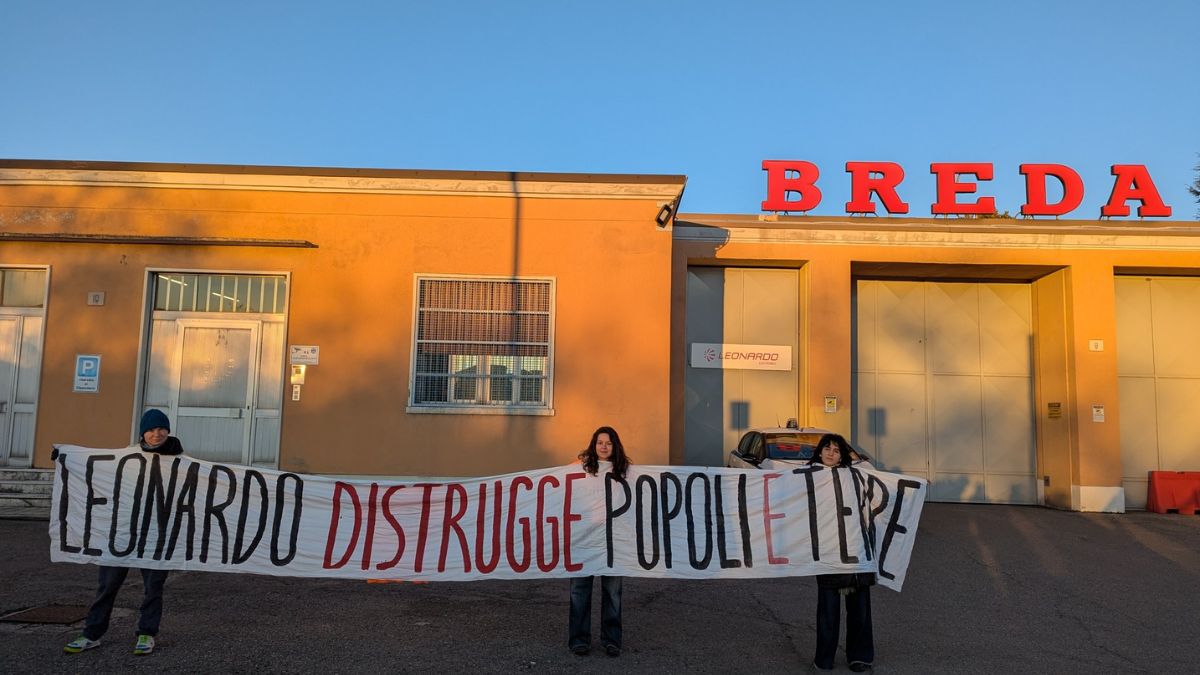Italian police have come under the scanner for allegedly subjecting seven female climate activists to degrading treatment during a clampdown on a protest. Police in the northern city of Brescia have been accused of making these female protesters remove their underwear and perform squats during questioning.
The police have denied the allegations, claiming the protesters’ “dignity” was “safeguarded”. The development comes as a contentious security bill that could target climate activists is being debated in the Italian Parliament.
Let’s take a closer look.
What happened?
Seven female climate protesters of the environmental group Extinction Rebellion were taken to Brescia’s main police station on Monday (January 13) morning after officers cracked down on their protest outside the Italian aerospace and defence firm Leonardo’s factory, as per The Guardian report. They were among the 22 people brought to the police station.
The protesters had briefly blocked the entrance to the Leonardo factory.
In a video posted on social media, a member of Extinction Rebellion alleged mistreatment at the hands of the police officers.
The woman said: “They asked me to undress, take off my underwear and do three squats, ‘for checks’, according to them.” She went on to claim that treatment was “only reserved for the females, not the males”.
Similar claims were made by another Extinction Rebellion activist in a separate video.
The squat tactic is generally used on people suspected of crimes like drug dealing, as per The Guardian report.
The protest was organised by environmental groups Extinction Rebellion and Last Generation, and the Free Palestine protest group.
After holding climate activists for nearly seven hours, the Brescia police charged them for the offences of “seditious gathering” and for “unannounced demonstration”.
What has Brescia police said?
As the videos emerged, Brescia police initially denied the allegations. However, later, they said in a statement that female officers carried out individual searches of the women during which activists were asked to “bend down on their legs in order to find any dangerous objects”, reported The Guardian.
Rejecting the allegations of degrading treatment, it said, “The confidentiality and dignity of people were safeguarded at all times and the correct operating procedures were followed.”
Police went on to accuse the activists of “illegal conduct” that “undermined public order and safety” by forming a human chain blocking the movement of trucks at the Leonardo factory and “littering the walls with writing”.
The women activists reportedly plan to make a formal complaint.
Opposition parties in Italy have called on the government to launch an investigation into the incident in Brescia.
Matteo Orfini, a politician with the centre-left Democratic party, claimed a similar incident occurred in Bologna. “A woman was forced to undress and was treated in an unacceptable manner. We ask [Interior Minister Matteo] Piantedosi to immediately verify and to intervene if [the allegations] are confirmed,” he was quoted as saying by the British newspaper.
Italy’s controversial security bill
Italy’s Parliament is debating a controversial security bill, dubbed the “anti-Gandhi” law, that targets climate activists by criminalising the blocking of roads and railways. Offenders could face up to two years in jail.
This comes amid Giorgia Meloni ’s rightwing government cracking down on demonstrations, including peaceful ones.
The bill was cleared in the lower house last September. Now, the Italian government is pushing for swift approval of the bill in the Senate.
Opponents of the proposed law say it is a deliberate attempt to silence dissent, which could lead to effectively ban street protests in Italy.
However, the government has dismissed the concerns.
Undersecretary for the Interior Ministry, Nicola Molteni told POLITICO last October that the Meloni government has guaranteed the right to protest “more than any other.”
“This government has never denied permission for or banned any protest unless it risked putting in danger the public order of our country,” he said, adding that the right to protest must not hinder “on the rights of others to work, to have transport, to have emergency services. This enters in a perimeter of illegality that cannot be tolerated.”
With inputs from agencies
)